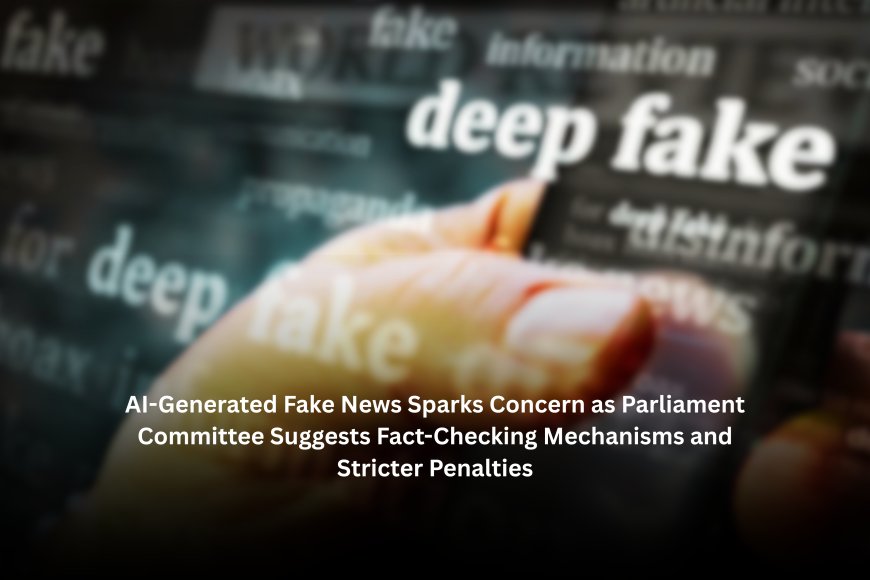AI-Generated Fake News Sparks Concern as Parliament Committee Suggests Fact-Checking Mechanisms and Stricter Penalties in India
A parliamentary committee has urged strong legal and technical measures to tackle AI-generated fake news, recommending licensing, labeling, fact-checking, and stricter accountability to protect public order and democracy in India.

A committee in Parliament warned about the growing problem of fake news that is made with artificial intelligence.The panel has asked the government to take significant legal and technical steps to restrict people and groups from sharing this kind of content.
The Standing Committee on Communications and Information Technology, led by BJP MP Nishikant Dubey, presented a draft report to Lok Sabha Speaker Om Birla. It will be brought up in Parliament during the next session.
The report explained that AI can play two roles when it comes to misinformation. On one hand, it can be used to detect fake content. On the other, it can also be misused to create deepfakes, fake news, and misleading videos.Because of this, the committee said India needs a balanced approach, to use AI as a solution while also keeping its risks under control.
The committee asked for better collaboration across ministries, such as the Ministry of Electronics and Information Technology (MeitY) and the Ministry of Information and Broadcasting. It advised looking into guidelines and laws that would punish people who spread fake news made by artificial intelligence. It also recommended new things, like giving licenses to those who make AI content and requiring people to label AI-generated videos, images, and posts.
The report stated that MeitY has already put together a group to look into deepfakes.There are two projects going on right now, one is to find false speech, and the other is to make software that can find deepfake videos and pictures.
The committee agreed that AI is still not sufficiently advanced to do complicated fact-checking by itself. However, it might be used as a preliminary filter to find news or media that seems suspect. People can check later to see if it is real or false.
The panel pointed out that fake news is a severe threat to society and democracy.They urged tighter rules, heavier fines, and obvious consequences for sharing false information. It also suggested that all media companies, including television, newspapers, and digital, have to check their facts and have an ombudsman. Even though the suggestions aren't legally enforceable, they typically have an effect on government policy. These steps could be very helpful in the fight against false information made by AI in India if they are put into action.
This article is based on information from India TV







